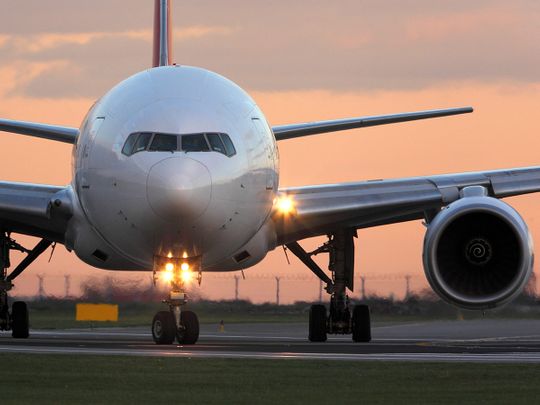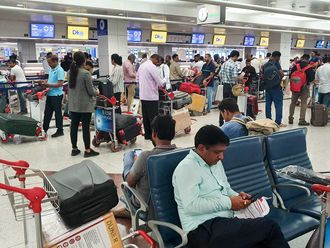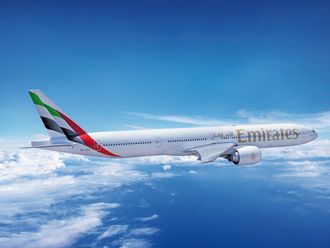
Dubai: Faster digital transformation and greater ‘human connection’, that’s the formula the Middle East’s aviation industry is focusing on post-pandemic.
“When restrictions on travel are lifted, people will quickly travel again,” said Abdul Wahab Teffaha, Secretary-General of Arab Air Carriers’ Organisation. “That shows us that nothing can replace direct human contact, and nothing can substitute air transport as being the preferred mode of travel.”
The industry is ‘sensing its way out’ of the hardest crisis that the air transport world has seen since its beginning. “Air travel almost came to a standstill, and with that, important and crucial leavers for turning the wheels of the economy also stopped,” said Teffaha. “With severe restrictions on travel, border closures, air transport and its affiliated industries were the ones who paid the heaviest economic price resulting from this pandemic.”
Airlines are in urgent need to work in a digital ecosystem based on two important elements - decentralized processes and dealing with the customer as a human being rather than a number.
In spite of going back almost to full normalcy, air travel, in terms of global traffic is less than in 2019 by 17.6 per cent and less by 5.7 per cent in terms of operating fleet, and 40 per cent in terms of tourist arrivals. This is also coupled with a tangible increase in operating costs due to the increase in jet fuel prices by 57 per cent. The high inflation rate and appreciation of the US dollar against other currencies also add to the overall cost. This has also led to a decrease in revenues resulting from sales in currencies other than the US dollar.
Digital transformation
Teffaha said that the quest for sustainable growth must go in tandem with the social and economic responsibility that the industry bears. “Information technology and digital transformation have opened a window for the continuation of trade and human interaction,” said the AACO official. “Through the adoption of governments of the digital identity of travellers, digital transformation should become the standard of dealing with travel across the world.
He reckons this will improve traffic flows and reduce the burden and complications travellers are experiencing. “Governments need to recognize digital identity in an interactive way, so the travel can be processed by changing the physical validation to a digital one.
Combat climate change
Speaking on the sidelines of 55th Annual General Meeting - AACO, Teffaha said that the aviation industry has expressed its ‘full commitment’ to CORSIA to limit international aviation carbon emissions to a level equal to 85 per cent of 2019 emissions. He called on governments, manufacturers, technology providers, and service and fuel suppliers to achieve a paradigm shift in digital transformation and to fight in earnest climate change.
“Governments must incentivize airlines to use sustainable aviation fuels by removing associated taxes and fees,” he said. “Secondly, it [governments] must agree on international standards to account for all airlines certificates and allow airlines to use book and claim without any geographical restrictions.”










